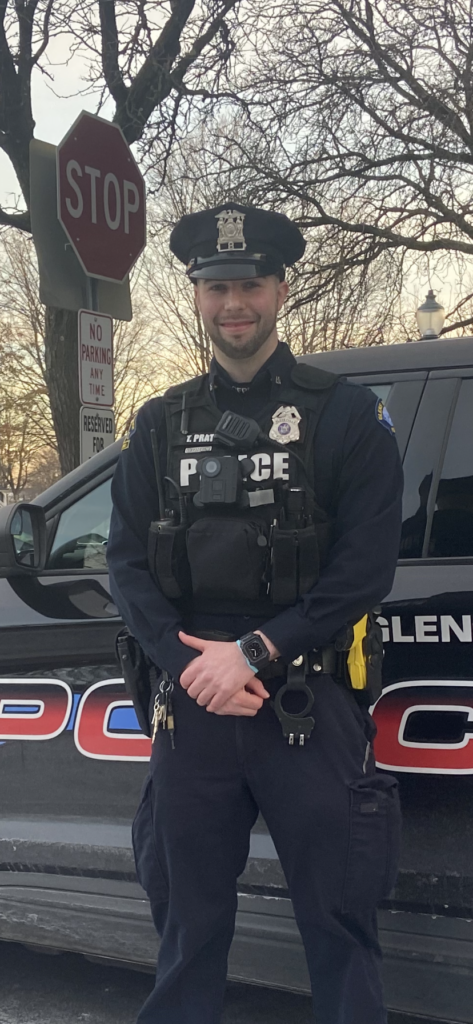Officer Pratt Gives Thanks for Community, Fellow Police, and Chief

Officer Pratt has been a member of The Glens Falls Police Department since he was 22 years old. He is originally from Greenwich, NY, and graduated from SUNY Canton. He recently completed the rigorous training to become a Certified Drug Recognition Expert. He is now among 450 Certified Drug Recognition Officers in the state. A DRE is skilled in detecting and identifying persons under the influence of drugs, and identifying the category or categories of drugs causing the impairment.
Drug Recognition Expert school involves demanding, intense training. Two phases of the training must be completed: academic training, and field training. Academic training is broken into two components. The first component is called pre-school: this is a two-day program, with the objective of ensuring that the student is prepared and capable of completing the seven-day DRE school. This component requires passing a standard field training sobriety test proficiency exam, as well as a written exam, in order to progress; failure to pass either test will result in dismissal from the course. The second component is instruction in physiology. This instruction includes learning to take vital signs, as well as extensive material on each of the seven drug categories, abuses, and general indicators.
After completion of the academic portion of the training, there is field certification. This includes a minimum of 12 evaluations on drug impaired individuals. To complete the training, the student must submit a comprehensive resume, correctly identify four of the seven drug categories, and complete a progress log.
To be considered for the program these standards must be met:
- 2 years of law enforcement service
- No record of probation
- 2 years of experience after successfully completing the NHTSA training
- Must have completed the ARIDE (Advanced Roadside Impairment Driving Enforcement) within the last 5 years
- Have a reasonable background and experience level with making DWI arrests.
Officer Pratt is aware that he would not have been able to complete this training without the support of the community, the department and the Chief of Police: “Everyone in the Department participated”, he said.
Officer Pratt is looking forward to being able to give back to the community with his DRE certification. This certification can assist other officers making arrests: he can tell if a person is chemically impaired or medically impaired. He also understands that his certification has broader uses; it can be used in child abuse cases, to evaluate kids who are impaired at school, and even potentially rule out if someone is actually impaired.
DREs conduct their evaluation in a controlled environment. This happens at the precinct, intake centers, troop headquarters, or other locations where impaired drivers are transported after arrest; as it is not typically done on the road-side, but rather as a post-arrest procedure.